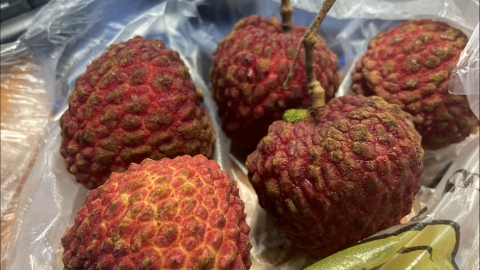Can I eat lychee if my face is allergic?
Whether someone with facial allergies can eat lychee depends on whether they are allergic to lychee and the severity of their allergic reaction. If they are not allergic to lychee and their allergy symptoms are mild, they may consume a small amount. However, if they are allergic to lychee or experiencing a severe allergic reaction, they should not eat it. If in doubt, it is recommended to consult a healthcare professional in advance. Detailed explanation is as follows:

If facial allergies are caused by other factors such as pollen or dust mites, and it is confirmed that there is no allergy to lychee, and the symptoms are mild, then a small amount of lychee may be consumed. Lychee is rich in nutrients such as vitamin C, and moderate consumption generally will not worsen facial allergy symptoms. It can also provide essential nutrients for the body. However, it is important to wash the lychee thoroughly before consumption and avoid contact between the juice and facial skin.
If someone is allergic to lychee, eating it may trigger or worsen facial allergic reactions, causing symptoms such as increased redness, swelling, itching, and more rashes. In severe cases, it may even lead to systemic allergic reactions. Therefore, lychee must be strictly avoided in such cases. Additionally, if facial allergy symptoms are severe and the person is experiencing an acute flare-up, the immune system may be in a hypersensitive state. Even if they were not previously allergic to lychee, immune system disturbances during this period may lead to intolerance to lychee and increase the risk of allergic reactions. Therefore, lychee is also not recommended under such circumstances.
When experiencing facial allergies, it is important to first determine whether one is allergic to lychee before consumption. If uncertain, a small test portion may be tried while closely observing any facial reactions. If any adverse reactions occur, stop consumption immediately.








